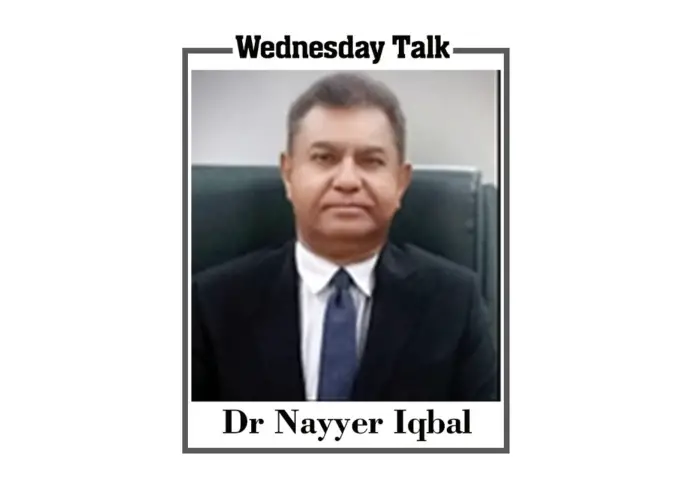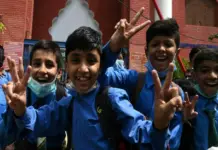August 17th, 1988, was a watershed in the history of Pakistan. On that day, General Zia-ul-Haq, the longest-serving ruler of this country, died in a fatal air crash along with numerous military and civil grandees, including the US Ambassador. It was neither the long duration of his rule nor the extent of the power which he exercised that made him important. Actually, it was the out-and-out transformation of the state and society under his sway that made him so salient. The Pakistan which he left behind on the fateful afternoon of 17th August 1988 was poles apart from that one which he had taken over during the momentous wee-hours of 5th July 1977. Unfortunately, no quality research has been brought forward by any local or international political scientist, as yet, regarding the period of General. So, the personality and policies of the man who presided over the sixth largest nation in the world for more than eleven years await an objective analysis. “Working with Zia” is basically the collection of a staff officer’s memoirs and very minimally serves the purpose.
The fact that General Zia was a consummate politician has not been disputed even by his worst critics. When he took over, very fast, he realised that despite the four-month-long right-oriented political movement against the ex-Prime Minister, which had practically paralysed the whole of Pakistan, the Bhutto phenomenon was not yet over. ZAB’s charisma and appeal still had the potential to topsy-turvy the newly crafted arrangement, and the PNA leadership was not in a position to counter him in fair play. The General moved swiftly and conclusively-the rest is history. Parallel to that, he also eased out the PNA by first inducting the alliance into the government and then segmenting it into small factions. After incapacitating both the sides of the 1977 crisis through carrot or stick and relying upon his uniform, he was to fear none. The MRD movement, Junejo’s surge, and the storm caused by Benazir’s return was handled adequately by the same instruments. Side by side, Gen. Zia very intelligently created his own constituency as well. Bhutto had alienated the religion-loving middle class; small and medium-level businessmen; and the deep-rooted landed aristocracy. General Zia lured in these groups with his Islamization process, ensuring dividends to commerce-related communities and placing agricultural reforms on the backburner. Apart from his military command, he drew considerable strength from these blocks. The upshot of these measures was a stable and prolonged spell.
Another aspect of Gen. Zia’s era, which can’t be overlooked, was the economic growth of Pakistan. By 1977, Bhutto’s economic mismanagement had substantially slowed the country’s growth rate from an average of 6.8% in the 1960s to 4.8% in the 1970s. Inflation had reached the horrible figure of 16%. As in the case of all the non-elected leaders, a fast-paced economic recovery was the General’s compulsion to balance out the public’s loss of political liberties. He took off by reversing Bhutto’s “Policy of Nationalization”, liberalising the economy and facilitating small and medium-scale businesses, which kick-started commercial activity. The increased inflow of foreign aid and remittances from expatriates proved to be the icing on the cake. It was not an ordinary success that, despite all political and security odds, Pakistan’s growth rate in the 1980s centred around 6.8%. It will not be fair if the role of the regime’s economic managers, particularly that of Ghulam Ishaque Khan and Doctor Mahbub-ul-Haq, is not acknowledged in this turnaround. They really planned and executed well during various stages of the General’s long stint. The sound financial health of the state played a cardinal role in the smooth sailing and continuity of Zia in the top office.
The Afghan War has been intentionally kept aside while discussing General Zia’s politics and economic policies. The issue was too important and too controversial to be amalgamated with some other topic. This US-sponsored proxy war fought by Pakistan in collaboration with Afghan freedom-fighters kept the USSR engaged for a decade and later played a considerable part in its disintegration. It was not only a military triumph but a political sensation as well, which ultimately converted a by-polar world into a unipolar one. Unquestionably, General Zia-ul-Haq was the central character of this epoch-making politico-military drama. However, it polluted Pakistan’s culture to a worrying extent, making heroin-like drugs, Russian weaponry, and black-money a part of day-to-day life. Criminal activities attained new dimensions, and law and order went to the dogs. It was simply unprecedented in the history of this region. Pakistan, as a state and society, suffered dreadfully and its long-term effects keep on jolting it off and on even after three and a half decades of this war’s culmination. It is to be noted that General Zia had stressed time and again to finalise the post-USSR-withdrawal arrangement beforehand; however, Prime Minister Junejo’s haste to sign the Geneva Accords proved to be a fatal mistake. It created a political vacuum in Afghanistan after Moscow’s abdication, later filled by violent ultra-right forces, having no experience in state-management. The rest need not be discussed here. While revisiting the Zia-era, it is criminal to overlook the condition of human liberties therein. Undeniably, it was a period of suppression for the media, fine arts, student politics, labour unionism, human rights, etc. How impressive General’s achievements in the spheres of economy, foreign affairs, and political stability might be; his track-record of human rights abuses out-balances them. When one looks back, even after thirty-four years since his exit from the national scene, one shudders. So many horrible scenes appear on my mind’s horizon.
Dr. Nayyer Iqbal is a retired officer of ‘Provincial Management Service'(PMS). Over the years, he has made his name as an academician-cum- analyst. His areas of interest are national and international politico-socio-economic issues. He can be reached [email protected]







